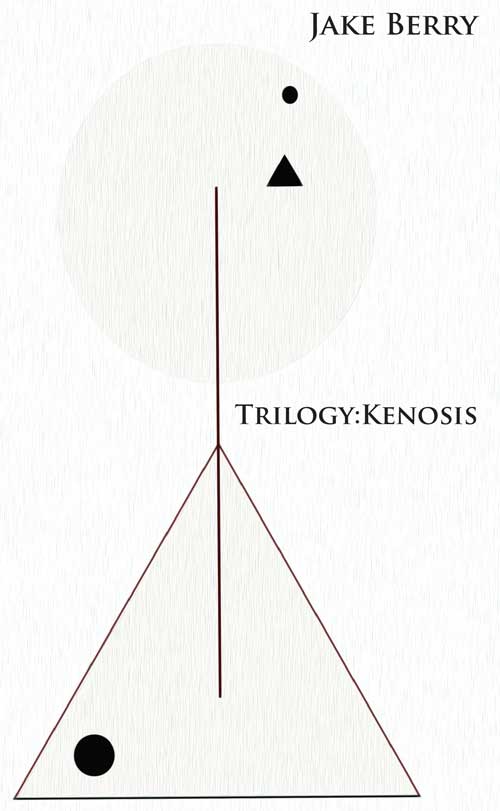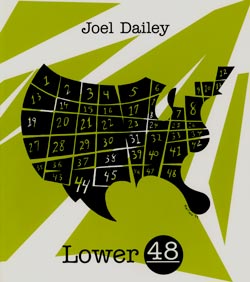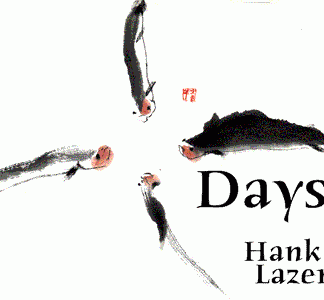Description
Trilogy: Kenosis
Jake Berry
ISBN: 978-1-944884-55-0 (paper)
58 Pages • December 1, 2018 (pre-order pricing until launch)
An American rural William Blake, with a bit of Neil Gaiman and Bob Dylan thrown in for good measure: over many years, from his home in Florence, Alabama, Jake Berry undoubtedly has become one of America’s finest, most unusual, and least recognized poet-playwright-artists. His latest book, Trilogy: Kenosis, may be his finest yet. “charged / resonant” … “polyphonic/ a cradle/ made of voices.” “it begins/ in a wound” – of sudden, terrible beauty. A book of dream, VISION, myth, fable, an archaeology of our deepest stories. “the torture/ the sheer hell/ of coming awake.” Trilogy: Kenosis is Jake’s own painful visionary and perhaps redemptive experience of this incarnation.
—Hank Lazer, author of Thinking in Jewish (N20), The New Spirit, & Evidence of Being Here: Beginning in Havana (N27)
Jake Berry is hands-down one of the finest poets writing today. He has an ear for interior sound like few others, and an unshakable faith in poetry as a portal to the luminous. I have never been anything but inspired when I read him. There is fire and ice in his words and great devotion.
—Neeli Cherkovski
How does one bridge the relationship between the divine as one perceives it and one’s suffering, desiring, joyful self—oneself in the world? How does rid oneself of the realm of Ego? In Christian theology, kenosis is the concept of the self-emptying of one’s own will and becoming entirely receptive to God and the divine will. Saint John of the Cross’ classic work, The Dark Night of the Soul is an attempt to depict such a process. Kenosis is also the message of the ecstatic concluding lines of Dante’s Divina Commedia: E’n la sua voluntade e nostra pace, “In his will is our peace.”
How does an American, a Southern multitalented poet located in the music-saturated region of Florence, Alabama do it? “If we have been in that house,” writes Jake Berry in the opening passage to this work,
it is no longer a house
but a fieldcharged
resonantmound
& stoneafter Beth-el
a dream like lightningunkempt in all his ways
These are the vestments
Triune
Polyphonica cradle
made of voices
a cradle
before the interruption
(before the incision)
of glass
There is nothing in that passage that is not exact—what the French call le mot juste. If the passage is nonetheless puzzling and enigmatic it is because it is constantly struggling to get beyond its perfectly conventional syntax into a realm of mystery, to force the words beyond syntax until they arrive at “a cradle / made of voices.” Here, syntax is selfhood, and language is a pure reaching beyond, “before the interruption / (before the incision),” into a deliberately other realm. Is this a Christian work invoking a Tri-partite God? I can’t tell you, but I can say this: Trilogy: Kenosis is a stretching of language into a realm we both can and cannot comprehend. It is not “one thing.” That the passage is beautiful, even breathtaking, goes almost without saying: all you have to do is speak it aloud. Yet its beauty is a function of its essential yearning. It is precisely an emptying out, kenosis. I can’t think of anyone else who is doing such work or who is capable of taking such risks: this is a poet who recognizes deep sorrow but who adds, in ecstasy (etymologically “standing outside oneself”), “our sorrow / cannot prevent spring arriving.”
—Jack Foley
Aphorisms of silence: Jake Berry’s recent book Trilogy:Kenosis (emptying) explores the world of the unspoken in a spare and lyrical eloquence that separates silence from space. Haunting dislocations of the body from the soul, a wandering in the epic sense though a broken post-modern language. Even in the complex longer poems emptiness sounds like a death knell, informed by an archaic mystical sense and yearning, qualities rare in contemporary poetry
of number there is only
a chasm
of every form
emptying
—Ivan Argüelles
In TRILOGY: KENOSIS Jake Berry empties the Greek psyche of Latin animus to find in the Gothic dark endless images for the soul. Then those images empties of light. Then voids the light, leaving only the poem, the drowned voice shining impossibly through entropy’s curse. The word surgeon performs in this operating theater the miracle of nothing. And Jesus, blood dripping from his lips, turns to Arjuna and quotes the last stanzas with, at last, the question to the answer. This blurb is just words. TRILOGY: KENOSIS is something beyond the soul of mineral, the animus of vegetable, the psyche of animal. To read these poems is to drift beyond any and all tongue noise. These poems you feel feel you.
—Willie Smith
Death and rebirth are recurring themes. Like all good poetry, the reader’s mind is allowed to wonder, grasping those stones that fall within our reach. As I have so often said, there is genius here, palpable and true. It stirs the mind, the soul, the heart and takes us where we desire and where we fear simultaneously.
The words he rolls across my pages challenge me and push me down and force me to fight back. Who am I if I cannot fight back?
Then comes the gem:
Memory is more
than what we remember and imagine –
It is the past made sacred
A truth so deeply profound it pulls us in and stirs our humanity. We are what we consume and what we read is food for the soul.
There is no questioning the religious nature of this work. It is a bearing of the soul and a sort of confession. We cannot be surprised that our hero has found religion in the autumn of his journey. He too needs the comfort of his love in the lonely hours of night. But his is no comfortable acceptance of the lord thy god. His is a struggle and a challenge to the orthodox light. His is a poet’s religion. His heaven is empty yet it is a place that welcomes all thinking sentient beings.
Once again Jake Berry has taken me to a place I would not go. Not on my own. Not at this time in my life. But it is a place I need to go. It is a place that gives life meaning even as it eviscerates all understanding. I understand.
Oblivion is not the opposite of memory.
It is its companion and completion.
I understand. There is warmth and hope in this lonely place. And we are not alone. We are guided by the poet just as Dante once was.
Like Dante, Jake Berry is a master of words and thought and prayer. In Trilogy: Kenosis he has given us a work that demands to be read again and again, even to our dying day.
—Jack Random, Author of Hard Times: The Wrath of an Angry God
Jake Berry’s poetry defies attempts to categorise it; such is its encompassing reach into a myriad of poetic styles and forms, which it deconstructs and reassembles in ways that are novel and pleasing.
The poems in this collection continue this standard, and express themselves in an assortment of registers, poetic modes and textual arrangements; and comprise elements that are: dreamlike, elliptical, philosophical, theological, koan-like and mythical—along with a measured use of classical and scientific allusion, and textual and numerical “samplings”.
But perhaps most importantly, the poems never stray from the one essential element poetry needs to have if it is to appeal to more than solely the intellect—musicality.
—Jeffrey Side
“You must enter the house / without entering it.” Jake Berry discovers while inventing miracles in each noticed silence. This brilliantly spiritual poetry changes the listener. The poet tells us “Aristotle uses the word ‘psyche’ for both soul and butterfly.” Then, “Heaven is empty. Everything depends upon it.” We share Berry’s recognition that “The pilgrimages have taken their toll.” In such common ground, the shared body draws from his wisdom. We go forward. “The stove needs tending / a few branches and dry grass.” Always work to do the simple and the spiritual, until
The phonograph winds down
The room is stripped bare
and we are alone, naked,
embracing against the cold
waiting
for the moon to break the last day open
—Sheila E. Murphy
Review by Gregory Vincent St. Thomasino at E-ratio.







Reviews
There are no reviews yet.